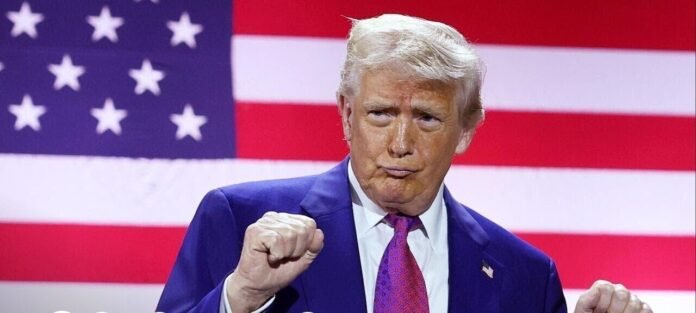Justices pause ruling that blocked end of TPS for Venezuelans; Jackson dissents as litigation continues
The U.S. Supreme Court has sided—at least temporarily—with President Donald Trump, granting his administration’s request to lift deportation protections for hundreds of thousands of Venezuelan migrants. The decision pauses a lower court’s ruling that had blocked Homeland Security Secretary Kristi Noem from rescinding Temporary Protected Status (TPS), a Biden-era policy that shielded Venezuelans from removal.
Issued late Monday, the high court’s unsigned order allows the Trump administration to move forward while ongoing legal battles play out. Justice Ketanji Brown Jackson registered the only noted dissent, signalling sharp division on a matter that sits at the intersection of immigration, executive power, and civil rights.
The Trump administration argued that U.S. District Judge Edward Chen had improperly inserted the judiciary into immigration policymaking. “The TPS program implicates particularly discretionary, sensitive, and foreign-policy-laden judgments of the Executive Branch,” Solicitor General John Sauer wrote in a May 1 filing. He contended that Chen’s ruling not only violated precedent but also mischaracterised the administration’s intentions.
Judge Chen had previously blasted the move as “unprecedented,” accusing Noem of relying on “negative stereotypes” and acting with potential unconstitutional bias. The Obama appointee said her actions could devastate hundreds of thousands of families, sap billions from the U.S. economy, and strain public services.
He found that plaintiffs, many of whom have lived legally in the U.S. for years, were likely to prove that the policy was illegal and rooted in “animus” against Venezuelans. Meanwhile, he dismissed government arguments that continuing TPS posed any real threat or burden, framing the government’s position as legally and morally unconvincing.
Sauer, in response, argued that the judge leaned on “a pastiche of out-of-context ‘evidence’” to infer racial bias. “This spurious theory,” Sauer wrote, “could be applied to virtually any immigration-related initiative of the Trump administration.”
The Ninth Circuit Court of Appeals declined to overturn Chen’s ruling, prompting Sauer’s emergency appeal to the Supreme Court. Monday’s order marks one of several high-stakes interventions by the court amid Trump’s second-term efforts to reassert broad executive control over immigration.
Lawyers for the plaintiffs responded with frustration, insisting there was no urgent threat justifying the Supreme Court’s action. They argued the litigation was moving properly through the lower courts, and accused the administration of using “emergency” appeals to shortcut due process.
“There is no emergency here,” they said, adding that lifting Chen’s block “would cause far more harm than it would stop.” They pointed out that the State Department continues to deem Venezuela too dangerous for U.S. citizens to visit, let alone for migrants to be forcibly returned.
Supporting the plaintiffs, immigration law scholars filed an amicus brief rejecting the administration’s claim to unchecked discretion. They argued the TPS statute was specifically designed to provide checks and balances on arbitrary executive action—a view reinforced by the program’s legislative history.
Monday’s ruling does not end the litigation. It allows the government to strip TPS protections immediately while legal challenges continue. However, it marks a significant early victory for Trump, whose second term has been defined by aggressive attempts to dismantle progressive immigration policies.
The case is separate from ongoing litigation over Trump’s use of the Alien Enemies Act to deport Venezuelan nationals accused of gang affiliation. In that matter, the Supreme Court ruled against the administration last week, requiring more due process for those targeted under that law.
For now, Venezuelan migrants with TPS face an uncertain future, subject to rapidly shifting legal winds and a presidential administration determined to assert its immigration agenda with full force.
